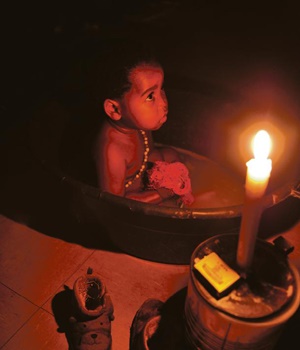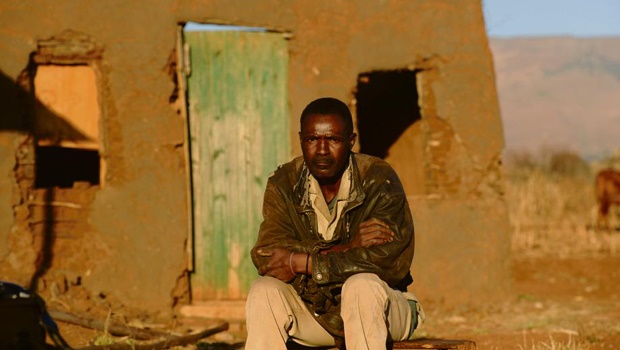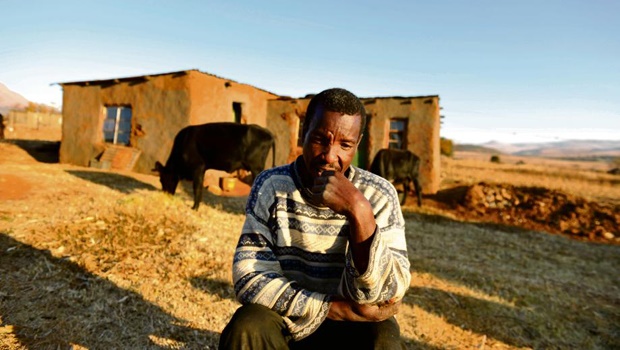
Farmers and farm labourers are working hard to find common ground and lasting solutions to challenges in small rural communities in their province, writes Sizwe sama Yende
It’s a chilly winter’s evening in Mpumalanga’s highveld region, and temperatures are plummeting.
The Hadebes are bracing themselves for yet another cold night in a community hall in Ntompe – a rural village tucked away 40km outside the small town of Piet Retief. Here, subzero temperatures are common at night.
The family’s meagre belongings are packed in boxes. The elevated stage at the local hall is their makeshift bedroom. They have squeezed three beds on to the stage and hang their facecloths and small pieces of clothing on railings.
Two candles shine dimly at opposite ends of the hall. The Hadebes have been living in the hall for three years, with no electricity during that period.
Barefoot children play on a cold, concrete floor, their young minds clearly unable to comprehend the gravity of the family’s situation.
In one corner of the hall, Philile Hadebe (21) is bathing her 15-month-old daughter Angela and dresses her warmly before it gets colder.
“She’s always coughing. This hall is just too cold,” Philile says.
Her grandmother Samaria Madonsela also walks around barefoot. She constantly complains about the subzero temperatures.
Their makeshift kitchen – a tiny corrugated iron shack erected next to the hall – provides some warmth from a coal stove and a brazier made from a large tin can.
This hall has been the Hadebe family’s home since their homestead of mud houses was razed after a farmer in nearby Donkerhoek obtained a court order allowing him to evict them. They had lived in Donkerhoek for generations.
The Hadebes said the source of the tension was their refusal to reduce their 108-strong herd of cattle and 135 goats, which the farmer said encroached on his crops.
They were ambushed at night, but were unable to identify the assailant. The police were also unable to help them.
Cases such as these have been common in Mpumalanga’s agricultural heartland.
Farm workers have been shot dead; others have been brutally assaulted and tortured. Some have suffered serious injuries to their genitals as a result of being electrocuted after accusations of stock theft, disputes with farmers over the desecration of graves, shooting of trespassing livestock and water cut-offs.
As a result, Mpumalanga’s premier, David Mabuza, decided to appoint a commission of inquiry to get to the bottom of the matter.
It was announced in February, and Mabuza’s spokesperson, Zibonele Mncwango, said the premier would provide more details at a later stage.
Before the commission even begins its work, though, people on the ground have been taking steps to defuse strained relationships.
Taking the lead are farmers’ body Agri SA and the not-for-profit organisation Insika Yesizwe, which was formed in 2010 to assist distressed farm workers.
“We sent petitions to the local court to complain that cases lodged by farm workers yielded no convictions,” said Insika Yesizwe chairperson Vusumuzi Ngema.
“We then met Agri SA for the first time in 2013 and agreed that there were problems on both sides. Farm workers are sometimes the cause of the trouble, and we inform them when they are wrong.
“I can say all of these tensions are gradually ending, since farmers and workers are now prepared to sit around the table to discuss problems and we get the local chief magistrate to facilitate mediation processes,” Ngema said.
Ngema said that, two weeks ago, a farmer who shot two trespassing cattle belonging to a farm dweller agreed to pay compensation after mediation.
Agri SA’s chairperson in Piet Retief, Tommy Ferreira, concurred. “There were lots of tensions in the past 20 years and there were no apolitical organisations to solve problems. What is different now is that Insika and Agri SA are communicating. “Insika will tell the farm dweller if he is wrong and Agri SA will tell the farmer … it is respect for the law,” Ferreira said.
An example that both Ngema and Ferreira cite as a success story involves Kurt Paul – a farmer who bought 2 600 hectares from Mondi Forests SA but encountered resistance from 73 families when he asked them to reduce their livestock counts because the animals were damaging his crops.
As a result of mediation, Paul has now fenced off 500ha of his land so families can use the remaining area for farming. He pays out of his pocket to have water delivered for them and is negotiating with the Mkhondo municipality to get them electricity.
“Some of the people were not happy with me as the new owner and I was threatened with violence. I found each family had 70 head of cattle on forestry land, which meant they were running a commercial farm.
“Insika intervened and I offered a portion of my land to government to buy it for them so they can have title deeds and do some business.
“We’re now living in harmony,” Paul said.


A HISTORY OF VIOLENCE
The rural southern tip of Mpumalanga has always been a ticking time bomb for farmers and farm dwellers.
They were first accused of using the SA National Defence Force’s commando units to victimise workers and labour tenants until then president Thabo Mbeki decided to phase out the commandos in 2003.
Private security companies were apparently then used by farmers to continue their reign of terror.
Nkosi brothers December (45) and Vusumuzi (52) from Dirkiesdorp are living proof of the region’s violent past.
They said their ordeal started when a farmer accused them of stealing sheep. Then a group of about 10 men ambushed them.
“After the assault, we urinated blood. I lost a wife because [of] the attack,” December said.
Vusumuzi not only cannot sustain an erection any more, he is also using a stick to walk.




 Publications
Publications
 Partners
Partners








